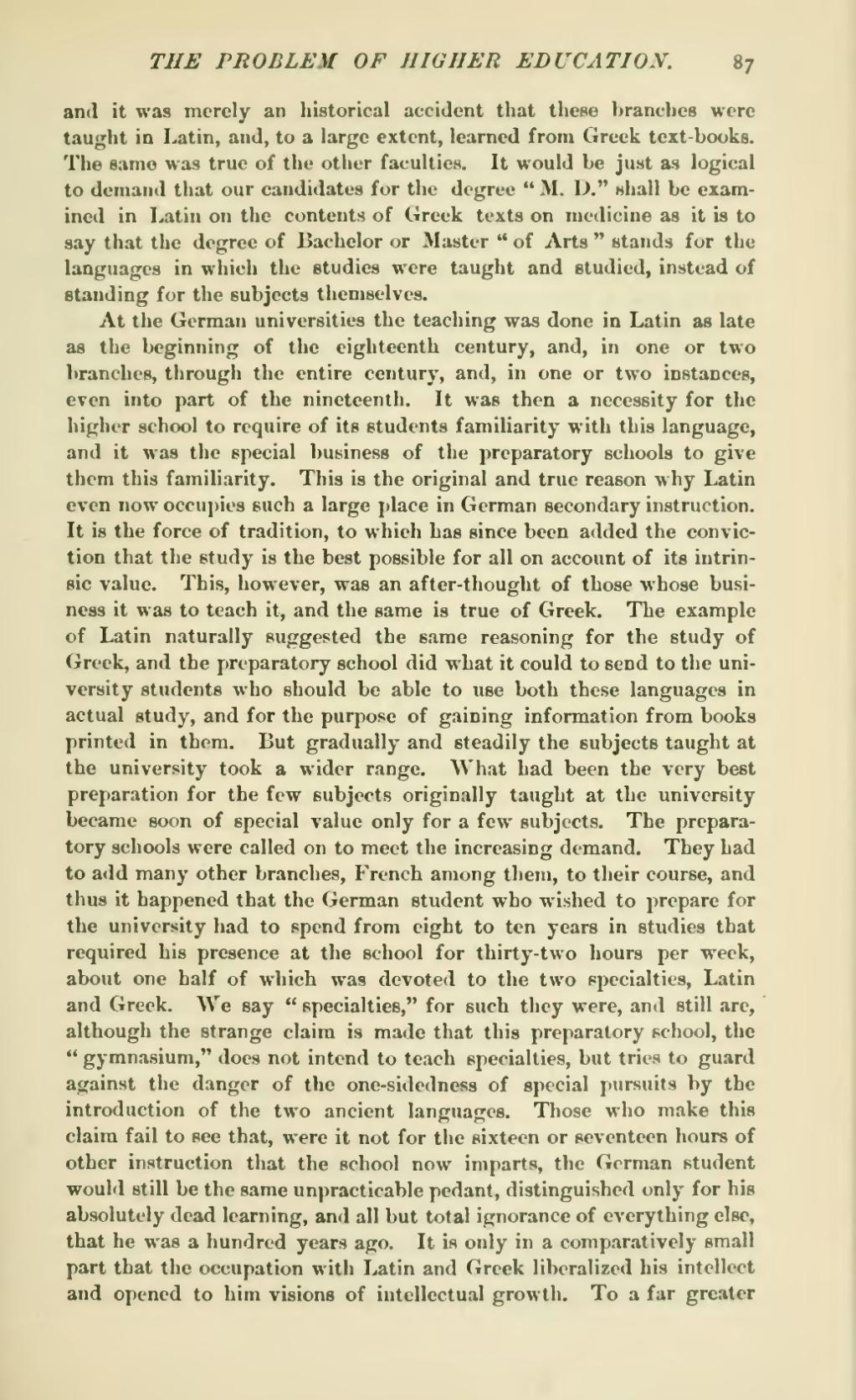and it was merely an historical accident that these branches were taught in Latin, and, to a large extent, learned from Greek text-books. The same was true of the other faculties. It would be just as logical to demand that our candidates for the degree "M. D." shall be examined in Latin on the contents of Greek texts on medicine as it is to say that the degree of Bachelor or Master "of Arts" stands for the languages in which the studies were taught and studied, instead of standing for the subjects themselves.
At the German universities the teaching was done in Latin as late as the beginning of the eighteenth century, and, in one or two branches, through the entire century, and, in one or two instances, even into part of the nineteenth. It was then a necessity for the higher school to require of its students familiarity with this language, and it was the special business of the preparatory schools to give them this familiarity. This is the original and true reason why Latin even now occupies such a large place in German secondary instruction. It is the force of tradition, to which has since been added the conviction that the study is the best possible for all on account of its intrinsic value. This, however, was an after-thought of those whose business it was to teach it, and the same is true of Greek. The example of Latin naturally suggested the same reasoning for the study of Greek, and the preparatory school did what it could to send to the university students who should be able to use both these languages in actual study, and for the purpose of gaining information from books printed in them. But gradually and steadily the subjects taught at the university took a wider range. What had been the very best preparation for the few subjects originally taught at the university became soon of special value only for a few subjects. The preparatory schools were called on to meet the increasing demand. They had to add many other branches, French among them, to their course, and thus it happened that the German student who wished to prepare for the university had to spend from eight to ten years in studies that required his presence at the school for thirty-two hours per week, about one half of which was devoted to the two specialties, Latin and Greek. We say "specialties," for such they were, and still are, although the strange claim is made that this preparatory school, the "gymnasium," does not intend to teach specialties, but tries to guard against the danger of the one-sidedness of special pursuits by the introduction of the two ancient languages. Those who make this claim fail to see that, were it not for the sixteen or seventeen hours of other instruction that the school now imparts, the German student would still be the same unpracticable pedant, distinguished only for his absolutely dead learning, and all but total ignorance of everything else, that he was a hundred years ago. It is only in a comparatively small part that the occupation with Latin and Greek liberalized his intellect and opened to him visions of intellectual growth. To a far greater
